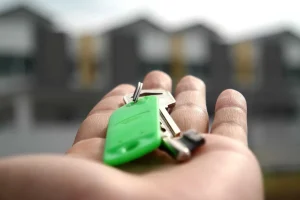The Complete Guide to Beauty Sleep Meaning and Benefits
We’ve all heard the phrase, tossed around half-jokingly after a late night or when someone looks particularly refreshed. “You must have gotten your beauty sleep.” But what is it, really? Is it just an old wives’ tale, or is there genuine substance behind this charming expression? I used to think it was just a nice way of saying “you don’t look tired today.” Oh, how wrong I was. The truth is, the entire concept is deeply rooted in biological processes that are crucial for our appearance and overall health. Understanding the real beauty sleep meaning and benefits is the first step toward transforming your nightly rest from a simple necessity into a powerful rejuvenation ritual. It’s not just about clocking in hours; it’s about unlocking a fundamental health and beauty secret that costs absolutely nothing.
Understanding “Beauty Sleep”: More Than Just a Phrase
So, let’s break it down. It’s not just about avoiding looking tired. That’s just the surface. True beauty sleep is about achieving the kind of deep, restorative rest that allows your body’s cellular repair mechanisms to kick into high gear. Think of it as a nightly maintenance crew for your entire body, but especially for your skin, hair, and even your mood. It’s the difference between waking up feeling just okay and waking up feeling genuinely restored, with a visible glow that no highlighter can truly replicate.
Defining Quality Rest for Radiant Skin
Quality rest isn’t measured solely by the number on your alarm clock. Eight hours of tossing and turning is infinitely less valuable than six hours of solid, uninterrupted slumber. True quality sleep involves cycling through the different stages of sleep, particularly the deep sleep (slow-wave) and REM stages. It’s during these critical phases that your body does the heavy lifting. Blood flow to the skin increases, cell turnover accelerates, and growth hormone is released to repair daily damage. Without these deep cycles, your skin simply doesn’t get the chance to heal itself from the day’s stressors, like UV radiation and pollution. It’s the ultimate overnight repair service.
The Historical and Cultural Roots of Beauty Sleep
The idea isn’t new. Not at all. For centuries, across various cultures, the link between sleep and beauty has been an accepted piece of wisdom. From ancient Egyptian queens who prized their rest to preserve their legendary beauty, to Victorian-era advice columns admonishing young women to get adequate sleep for a clear complexion, the concept has persisted. Why? Because the results were observable long before we had the scientific instruments to prove them. People noticed that a good night’s rest led to brighter eyes, smoother skin, and a more pleasant disposition. This wasn’t vanity; it was an intuitive understanding of the body’s natural rhythms and its profound need for recovery. They didn’t have the complex science, but they had the results right in the mirror.
The Science-Backed Benefits of Rest for Your Appearance
If anecdotal evidence isn’t enough for you, the modern science is crystal clear. The link between sleep and appearance is irrefutable, and researchers are continually uncovering more about the intricate processes that unfold while we’re unconscious. The tangible beauty sleep meaning and benefits are written all over our faces when we prioritize rest. It’s a fascinating cascade of hormonal regulation, cellular repair, and fluid balance that dictates how we look when we wake up.
How Sleep Repairs and Rejuvenates Your Skin
What happens to your skin during sleep is nothing short of magical. Your body enters a state of profound repair. During the day, your skin is in defense mode, fighting off environmental aggressors. At night, it switches to offense—or rather, a full-blown reconstruction project. Your body produces more growth hormone, which helps repair damaged cells. This is also the time when your skin’s cell turnover rate is at its highest, meaning new, healthy cells are being produced to replace older, damaged ones. This process is essential for healing wounds, reducing inflammation, and building a stronger skin barrier. It’s also why nighttime skincare can be so effective; products are working in tandem with your body’s natural restorative state. The benefits of deep sleep for anti-aging are not just a myth; they are a biological reality grounded in cellular biology.
Collagen Production and Skin Elasticity
Here’s the big one: collagen. This is the protein that gives our skin its firmness, plumpness, and elasticity. You want more of it. Period. And guess what? Sleep is a prime time for its production. When you’re sleep-deprived, your body releases more of the stress hormone cortisol. Excess cortisol can break down collagen and elastin, the very proteins that keep your skin smooth and supple. Answering the question of why is sleep important for collagen production is simple: more cortisol means less collagen. Consistently good sleep keeps cortisol levels in check, allowing your body to focus on building, not breaking down. The link between focused beauty and collagen is undeniable, and sleep is the factory’s on-switch. By prioritizing rest, you are directly investing in your skin’s structural integrity for years to come.
Reducing Under-Eye Bags and Dark Circles
I once went through a week on about four hours of sleep a night, and the first thing people asked me was, “Are you okay? You look exhausted.” They weren’t looking at my posture; they were looking at the giant, puffy, dark circles under my eyes. When you don’t sleep enough, blood circulation can become sluggish, allowing blood to pool under the eyes, creating that dreaded dark hue. Furthermore, poor sleep disrupts your body’s ability to regulate fluid, leading to puffiness and those stubborn under-eye bags. Getting enough rest helps ensure proper fluid drainage and healthy circulation, drastically reducing the appearance of tired eyes. It’s the cheapest, most effective eye cream there is.
The Impact of Rest on Hair Health and Growth
It’s not just your skin. Your hair feels the effects of sleep deprivation, too. Hair follicles, where hair growth begins, gain nutrients, vitamins, and minerals from blood flow. Since blood flow to the skin and scalp increases during sleep, this is a crucial time for delivering the building blocks your hair needs. Furthermore, just like with skin, high cortisol levels from lack of sleep can be detrimental, potentially leading to hair thinning or even hair loss by prematurely pushing hair follicles into their resting phase. Can sleep improve hair growth? Absolutely. It creates the optimal physiological environment for it to thrive.
Boosting Mood and Overall Radiance
Let’s be honest. When you’re tired, you’re grumpy. Irritable. Stressed. That tension shows on your face. Your brows furrow, your jaw clenches, and your expression becomes strained. A well-rested person, on the other hand, is generally calmer, happier, and more relaxed. This emotional state translates directly to your appearance. A relaxed face has fewer lines, and a genuine smile contributes to a radiant, approachable look. Restful sleep for mental clarity and appearance go hand-in-hand. This inner calm and happiness create an outer glow that no amount of makeup can fake.
Sleep’s Role in Weight Management and Metabolism
The connection might seem indirect, but it’s powerful. Sleep deprivation messes with the hormones that regulate hunger: ghrelin (the “I’m hungry” hormone) and leptin (the “I’m full” hormone). Lack of sleep causes ghrelin to spike and leptin to plummet. The result? You feel hungrier, you crave high-calorie, unhealthy foods, and you’re less likely to feel full after eating. This hormonal havoc makes weight management significantly more challenging, and maintaining a healthy weight is an integral part of overall well-being and appearance.
Unlocking the Secrets to Optimal Beauty Sleep
Okay, so we’re all convinced. We need it. But wanting it and getting it are two different beasts. Understanding the beauty sleep meaning and benefits is one thing; consistently achieving it is another. It requires intention and creating a routine that signals to your body and mind that it’s time to power down and begin the crucial work of restoration. It’s about more than just having a bedtime.
Establishing a Consistent Sleep Schedule
This is probably the most important—and for many, the most difficult—rule. Go to bed and wake up at roughly the same time every day. Yes, even on weekends. I know, it’s torture to get out of bed at 8 a.m. on a Saturday when you don’t have to, but your body craves routine. A consistent schedule reinforces your body’s sleep-wake cycle, or circadian rhythm, helping you fall asleep more easily and wake up more naturally. When people ask, “how many hours of beauty sleep do you need?”, the standard answer is 7-9 hours for most adults. But consistency is just as vital as duration.
Creating Your Ideal Sleep Environment
Your bedroom should be a sanctuary for sleep. Not an office, not a cinema, not a dining room. Its primary purpose should be rest. This means optimizing it to be as conducive to sleep as possible. It takes a little effort, but the payoff is immense. I personally turned my bedroom into what my friends call “the cave,” and I’ve never slept better.
The Importance of Darkness, Quiet, and Temperature
These are the holy trinity of sleep hygiene. Your body is hardwired to associate darkness with sleep, as it triggers the production of melatonin, the sleep hormone. Use blackout curtains or a sleep mask to block out every bit of light. Quiet is just as crucial. If you live in a noisy area, consider earplugs or a white noise machine to drown out disruptive sounds. Finally, keep it cool. Most experts agree that a temperature between 16-19 degrees Celsius is ideal for sleeping, as your body’s core temperature naturally drops as it prepares for rest.
Choosing the Right Bedding and Pillows
You spend a third of your life in bed; it’s worth investing in. Your mattress should be comfortable and supportive. Your pillows should keep your head and neck in a neutral position to prevent aches and pains. And your bedding material matters. Breathable fabrics like cotton, bamboo, or linen can help regulate body temperature, preventing you from overheating during the night. It’s a small change that makes a huge difference in comfort.
Pre-Sleep Routines: From Skincare to Relaxation
Winding down is not optional. You can’t go from 100 to 0 in five minutes. Create a pre-sleep ritual that tells your brain it’s time to relax. This could be reading a book (a real one, not on a screen!), taking a warm bath, listening to calm music, or practicing gentle stretching or meditation. It’s also the perfect time for an intentional skincare routine. Following a multi-step process, like a detailed Korean beauty skincare routine, can be incredibly meditative and ensures your skin is prepped to receive the maximum benefits of its nightly repair cycle. Combine this with other proven facial beauty tips for sleeping, like sleeping on your back, to truly elevate your rest.
Diet and Exercise: Their Influence on Your Nightly Rest
What you do during the day significantly impacts your night. Regular exercise can help you fall asleep faster and enjoy deeper sleep. Just try not to do a high-intensity workout too close to bedtime, as it can be overstimulating. Your diet also plays a key role. Avoid large meals, caffeine, and alcohol before bed. Caffeine is a stimulant, and while alcohol might make you feel drowsy initially, it disrupts sleep cycles later in the night, preventing that restorative deep sleep you’re after.
Common Obstacles and How to Overcome Them
Even with the best intentions, life happens. Stress, anxiety, and bad habits can all get in the way. Acknowledging the common hurdles is the first step to overcoming them and getting back on track to reaping the beauty sleep meaning and benefits you deserve. It’s not about perfection; it’s about persistence.
Dealing with Insomnia and Sleep Disturbances
If you find yourself consistently struggling to fall or stay asleep, it’s frustrating. Don’t just lie there staring at the ceiling for hours; it only creates anxiety around sleep. If you’re not asleep after 20-30 minutes, get out of bed and do something relaxing in low light, like reading, until you feel sleepy again. For chronic issues, cognitive behavioral therapy for insomnia (CBT-I) has proven to be extremely effective, and it’s worth speaking with a healthcare professional.
Avoiding Screen Time Before Bed
This is the modern-day sleep killer. The blue light emitted by our phones, tablets, and computers suppresses melatonin production, tricking our brain into thinking it’s still daytime. It’s a tough habit to break, I get it. The endless scroll is designed to be addictive. But you have to. Set a digital curfew for yourself—at least an hour before bed, no screens. Charge your phone across the room so you’re not tempted. It’s one of the single most impactful changes you can make for your sleep quality.
Maximizing Your Beauty Sleep with Supportive Products and Practices
Once you have the fundamentals down, you can introduce elements that enhance the experience and results. Think of these as boosters for your foundational sleep routine, helping you get the most out of every night and fully harness the beauty sleep meaning and benefits.
Incorporating Skincare for Enhanced Nighttime Repair
Night is the prime time for your skin to absorb active ingredients. While your body is in repair mode, your skin is more receptive to treatments. This is the time to use products with ingredients like retinoids, peptides, and hydrating hyaluronic acid. A quality overnight mask or one of the many targeted beauty essences for skincare can provide a concentrated dose of nutrients, working in synergy with your skin’s natural regeneration process to deliver visible results by morning. Your evening routine is where you support the incredible work your body is already doing.
The Role of Supplements in Promoting Rest
Sometimes, your body needs a little extra support. Certain supplements can help promote relaxation and improve sleep quality. Melatonin can help reset your sleep-wake cycle, especially for jet lag. Magnesium is known for its calming effects on the nervous system. And ingredients like L-theanine or chamomile can help reduce anxiety and promote a sense of calm before bed. Of course, it’s always best to chat with a doctor before starting any new supplement regimen to ensure it’s right for you and won’t interact with other medications.
The Lasting Impact: Embracing Beauty Sleep for Long-Term Well-being
Ultimately, this isn’t about a quick fix for tired eyes or a single night of good rest. It’s about a fundamental shift in how you view sleep. Stop seeing it as a luxury or a passive state of doing nothing. Start seeing it for what it is: an active, powerful, and absolutely essential process for your physical health, mental clarity, and natural beauty. By truly embracing the beauty sleep meaning and benefits, you’re not just investing in how you look tomorrow; you’re investing in a healthier, more vibrant you for the long haul. It is the foundation upon which all other wellness and beauty efforts are built. Ignore it at your own peril. Prioritize it, and watch yourself blossom.







